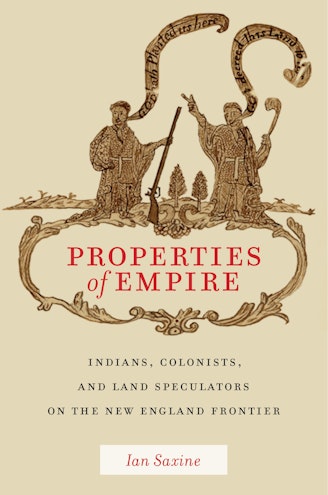(Source: NYU Press)
New York University Press has published a new
book on the dynamic relationship between Native and English systems of property in colonial America.
ABOUT THE BOOK:
A fascinating history of a contested frontier,
where struggles over landownership brought Native Americans and English
colonists together in surprising ways to preserve Indigenous territory.
Properties of Empire shows the dynamic
relationship between Native and English systems of property on the turbulent
edge of Britain’s empire, and how so many colonists came to believe their
prosperity depended on acknowledging Indigenous land rights.
As absentee land speculators and hardscrabble
colonists squabbled over conflicting visions for the frontier, Wabanaki
Indians’ unity allowed them to forcefully project their own interpretations of
often poorly remembered old land deeds and treaties. The result was the
creation of a system of property in Maine that defied English law, and
preserved Native power and territory. Eventually, ordinary colonists, dissident
speculators, and grasping officials succeeded in undermining and finally
destroying this arrangement, a process that took place in councils and
courtrooms, in taverns and treaties, and on battlefields.
Properties of Empire challenges assumptions
about the relationship between Indigenous and imperial property creation in early
America, as well as the fixed nature of Indian “sales” of land, revealing the
existence of a prolonged struggle to re-interpret seventeenth-century land
transactions and treaties well into the eighteenth century. The ongoing
struggle to construct a commonly agreed-upon culture of landownership shaped
diplomacy, imperial administration, and matters of colonial law in powerful
ways, and its legacy remains with us today.
ABOUT THE AUTHOR:
Ian Saxine is Assistant Professor of History at Bridgewater State
University. His writing has previously appeared in the New England Quarterly,
winning the 2013 Whitehill Prize in Early American History.
More information here


No comments:
Post a Comment